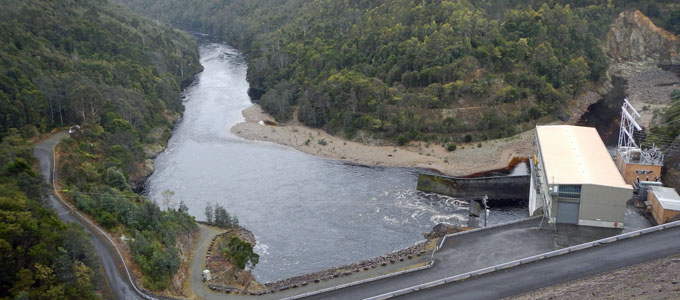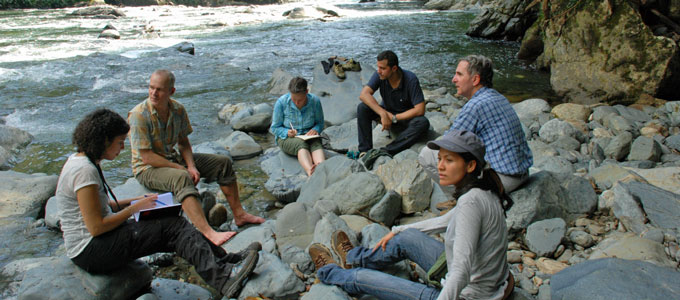THOUGHT LEADERSHIP
Managing risks for successful, sustainable projects
All power and water projects involve risks. The key to project success and sustainability is being able to anticipate, monitor and manage the full range of risks throughout the project lifecycle.
For power and water asset developers, sustainability is increasingly recognised as a key marker of project success and corporate reputation. Whether you’re building a hydropower station, a dam, a wind farm or a solar farm, achieving sustainability means ensuring that projects appropriately balance technical, environmental, social and economic considerations to deliver benefits and minimise risks across all these areas.
Power projects, especially in developing countries, hold great potential to contribute to the greater good by increasing prosperity and alleviating poverty, but growth must be balanced against any current and future impacts on communities or the environment. Sustainability is therefore a key concern for responsible developers, and for international financing organisations such as the Asian Development Bank, the International Finance Corporation and the World Bank.
Managing risks carefully, ethically and transparently can improve the financial and technical viability of the project, the ability to secure finance, the ability of key stakeholders to make informed decisions about the project’s future, the likelihood of community acceptance or ‘social licence to operate’, and the overall project outcomes, both now and for long-term success and sustainability.
What are the risks?
Some of the key risks to be considered throughout the design, development and operation of a power or water asset include factors such as the need or market for the project, the future energy or water demand, the best technology or design for the project, and the current and future availability of the resource.
It is also critical to consider the project’s stakeholders and broader community, particularly whether the project could involve potential social or environmental impacts and how these could be avoided, mitigated, offset or compensated, not just during development of the project but also during operation. Safety is also a key issue to be managed throughout a project’s life, including that of employees as well as the broader community.
Although not all risks will necessarily be able to be fully predicted, businesses are likely to gain substantial benefits from making structured and systematic efforts to foresee risks across the spectrum of financial, technical, stakeholder, community and environmental issues.

Assess risks early and often
Many project risks can be minimised or mitigated if they are properly anticipated early in the project, and progressively monitored and evaluated throughout the design, development, construction and operational phases.
Identifying key risks early allows companies to manage these risks throughout the project, minimising corporate, technical, environmental and social impacts and their associated costs, including damage to corporate reputation should an unmanaged risk develop into a crisis.
Assessing the risks progressively or in stages can minimise not only the cost of formal evaluation, but also save significant time and costs that could be wasted if a project were to be judged unviable during development.
Sustainability assessment, both formal and informal
Being able to formally or informally assess and comprehensively document risks and actions towards project sustainability offers significant advantages. While it can help guide a comprehensive review of risks, it can also help to identify further opportunities to increase positive outcomes. As well, it provides an easy way to regularly assess progress towards sustainability goals against established baselines, and offers a format for clear reporting both internally and to external funding bodies and stakeholders. In other words, sustainability assessment and reporting is a valuable step in demonstrating a genuine commitment and responsible approach to achieving greater sustainability.

Entura uses a unique, tailored self-assessment tool to help power and water companies and developers understand the risks and opportunities facing their projects and build their capacity to assess, monitor and report on those projects. This tool is based on the assessment criteria identified in internationally recognised guidelines and standards such as the Hydropower Sustainability Assessment Protocol and those used by the International Finance Corporation.
The sustainability scanning tool can be used by an organisation to self-assess a project to identify whether key issues, risks and opportunities have been fully considered and to identify potential gaps needing further attention. This can be done internally following training on how to assess the criteria or undertaken by Entura’s trained assessors.
In addition, Entura’s sustainability scanning tool can be adapted to include other standards relevant to a project or client, or to assess compliance with criteria relevant to a client’s requirements or obligations (such as internal policies and/or permit or concession conditions). It can be used at any stage, or multiple stages, of a project, and for any level of sustainability goal (i.e. good practice or best practice). It can also be repeated over time for the same project to assess ongoing improvement, or to compare projects across a client’s portfolio.
The potential benefits to power and water asset developers of a systematic and thorough identification and management of the full range of project risks include easier access to finance, reduced corporate risks and costs, greater ability to anticipate and respond to stakeholder concerns, and avoidance of delays and problems through the project’s life.
This holds promise for delivering power and water infrastructure projects that are more likely to contribute positively to social, environmental and economic goals both now and into the future.
If you would like to discuss how Entura can assist you with assessing the sustainability of your project or support you to assess and track your own progress towards minimising risks and increasing sustainability, please contact Dr Eleni Taylor-Wood on +61 3 6245 4582 or Shekhar Prince on +61 412 402 110.
About the author
Dr Eleni Taylor-Wood is Entura’s Principal Consultant, Environmental and Social Science. Eleni has 20 years’ experience successfully managing large-scale, complex projects, as well as providing expert advice and independent review for a range of infrastructure and planning projects. She has worked on projects around the world including in Australia, Mozambique, South Africa, Iceland, Colombia, India, Malaysia, China, Solomon Islands, Fiji and Papua New Guinea. Her experience includes environmental and social impact assessment and management, strategic management of wetlands and waterways, feasibility and approvals for new hydropower projects, environmental flow determination and assessment, and sustainability assessments. Eleni is currently one of eleven accredited assessors worldwide under the Hydropower Sustainability Assessment Protocol.
MORE THOUGHT LEADERSHIP ARTICLES
15 March, 2016






